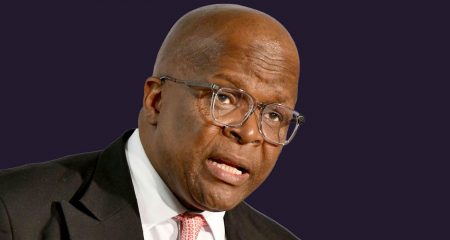
Mail is piling up at the Witspos post office south of Johannesburg. The mail floor, a giant warehouse the size of about three rugby fields, is almost deserted. Piles of parcels and boxes and sacks of letters are stacked on the floor. A few postal employees sort through the mail in the dim light. The mail continues to pile up.
As the South African Post Office strike goes into its 10th week, some workers are demoralised about their union’s “failure” to negotiate permanent employment contracts even though independent minority groups have succeeded.
A post office employee, who did not want to be named for fear of victimisation, asked the Mail & Guardian on Tuesday: “Why are you talking to management and the union? They are feeding you lies.”
Another said the “union leaders are in bed with politicians and management and that’s why we can’t trust them”. At Witspos, employees said they were scared of speaking to the press. “You never saw me. You never spoke to me,” one said.
Another estimated that about R8m worth of packages and parcels were on the floor. “But don’t worry, once this issue [the labour dispute] is sorted, it will take us just over a week to send everything out. That’s if we work at full capacity,” he said.
Another frustrated union member said: “These guys [casual labourers] were able to mobilise themselves and talk to the big bosses. Now they have [permanent] jobs and the rest of us are still waiting.
“I was a supervisor and got fired last year after the strike and now I have been rehired as a casual worker. I have to start at the bottom getting R6 000 — R3 000 after tax and some payments — from R14 000. “And what’s the union doing about that? Nothing.”
The latest round of the strike began after the Post Office said it could not honour the labour agreement and supplementary contracts it entered into with workers.
The M&G reported last week that Lungile Lose, the Post Office’s head of corporate services, said the organisation had adopted a “flexible” labour strategy to hire the casual workers as permanent employees but, as a result of the organisation’s poor financial position, a “slower approach” had been adopted.
According to the Communications Workers Union’s (CWU), the “slower approach” entailed the permanent employment of about 600 non-union casual workers, which was to weaken the union.
“No criterion was used to hire the 600 people. We know that some minority group gave a list of people it wanted hired to Janras [Kotsi, the group executive of mail services] and he gave them jobs,” said Clyde Mervin, the CWU president.
Lose told the M&G last week that the Post Office was working towards ending industrial efforts through negotiations with all parties that have issues and grievances.
“We have been having these work disruptions on and off for a month. [Unfortunately] when we have an agreement [with one group] of employees, another group of employees brings up different issues.”
Upside down
Kotsi, who was suspended on 3 October, was not in his office when the M&G visited it this week, but a framed photograph of him had been rehung — upside down.
Some workers said they felt the negotiations would have gone better had they negotiated with management independently.
In an interview with the M&G this week, John Brand, the executive member of the South African National Dispute Resolution Practitioner’s Council, said the problem with unions was that they “are not close enough to the ground to look after the interest of their members”.
“In my book, there is a kind of disconnect between members and the leadership. Once they get made shop stewards, they move into air-conditioned offices, get incentives like cars and housing allowances, move out of their communities to better suburbs and take their kids to model C schools,” Brand said.
The problem with the union federation Cosatu was that it had become complacent, he said. There was a breakdown in the whole system.
Workers had had enough and the distrust between them and their union leaders had led to the formation of workers’ committees who negotiated directly with management, cutting out the leadership.
An ANC policy adviser said the unions had forgotten their traditional role, choosing to focus on politics.
“These [unionised] workers are asking why are they members of these unions. These are genuine questions being asked. The workers are seeing that these guys are being bought, especially with institutions close to the state, like the post office.”
Cosatu spokesman Patrick Craven said it was the casualisation of labour that made trade unions and collective bargaining necessary. — (c) 2014 Mail & Guardian
- Visit the Mail & Guardian Online, the smart news source




